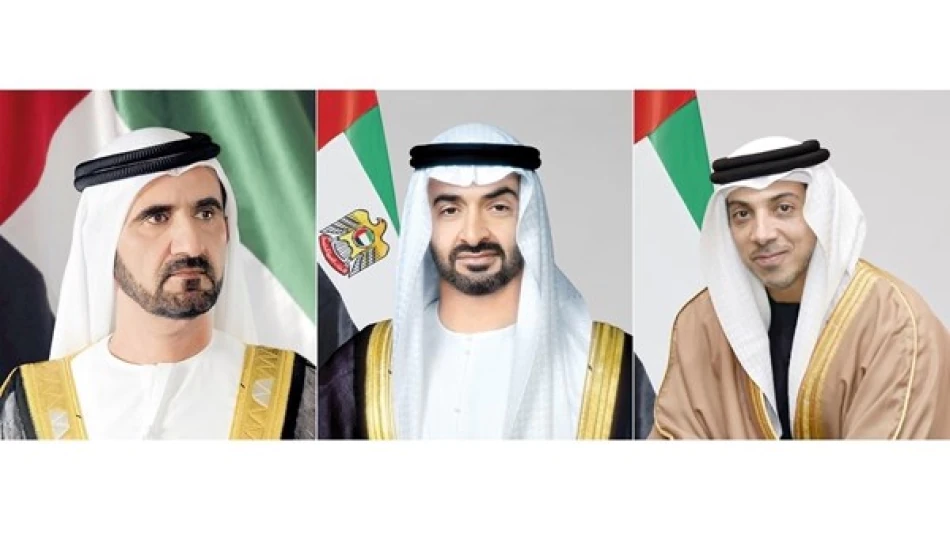
UAE President and VPs Congratulate Moldovan President on Independence Anniversary
UAE Leadership Extends Diplomatic Congratulations to Moldova on Independence Day
The United Arab Emirates' top leadership has sent congratulatory messages to Moldova's President Maya Sandu and Prime Minister Dorin Recean, marking the Eastern European nation's Independence Day. The diplomatic gesture reflects the UAE's continued strategy of strengthening ties with smaller nations as part of its broader foreign policy expansion.
High-Level Diplomatic Outreach
President Sheikh Mohamed bin Zayed Al Nahyan led the congratulatory messages to President Maya Sandu, with similar communications sent by Vice President and Prime Minister Sheikh Mohammed bin Rashid Al Maktoum and Deputy Prime Minister Sheikh Mansour bin Zayed Al Nahyan. The coordinated approach demonstrates the importance the UAE places on maintaining diplomatic relationships across diverse geographical regions.
Strategic Significance of UAE-Moldova Relations
While Moldova may seem an unlikely partner for the Gulf nation, this diplomatic engagement aligns with the UAE's evolving foreign policy strategy. The Emirates has increasingly sought to diversify its international partnerships beyond traditional Middle Eastern and Western allies, particularly as it positions itself as a global business and diplomatic hub.
Moldova's Geopolitical Context
Moldova, which declared independence from the Soviet Union in 1991, represents an interesting case study for UAE diplomacy. The small landlocked nation of 2.6 million people sits between Romania and Ukraine, making it strategically positioned in current European dynamics. Under President Sandu's leadership since 2020, Moldova has pursued closer ties with the European Union while managing complex relationships with Russia.
Economic Opportunities and Investment Potential
From an economic perspective, Moldova offers potential opportunities in agriculture, particularly wine production, and emerging technology sectors. The UAE's outreach could signal interest in exploring investment opportunities in Moldova's developing economy, especially as European nations seek to reduce energy dependence on Russia following the Ukraine conflict.
The timing of these diplomatic messages also coincides with Moldova's ongoing efforts to attract foreign investment and diversify its economic partnerships. For UAE investors, Moldova represents a potential gateway to European markets, particularly if the country advances in its EU integration process.
Broader Implications for UAE Foreign Policy
This diplomatic engagement reflects the UAE's systematic approach to building relationships with nations across different continents and economic scales. Similar to its partnerships with countries like Singapore, Rwanda, and various Latin American nations, the UAE appears to view Moldova as part of its strategy to create a global network of diplomatic and potentially economic partnerships.
The formal nature of the congratulations, involving multiple senior leaders, suggests the UAE sees value in maintaining consistent diplomatic protocols even with smaller nations, potentially laying groundwork for future cooperation in areas ranging from trade to technology transfer.
Most Viewed News

 Layla Al Mansoori
Layla Al Mansoori






